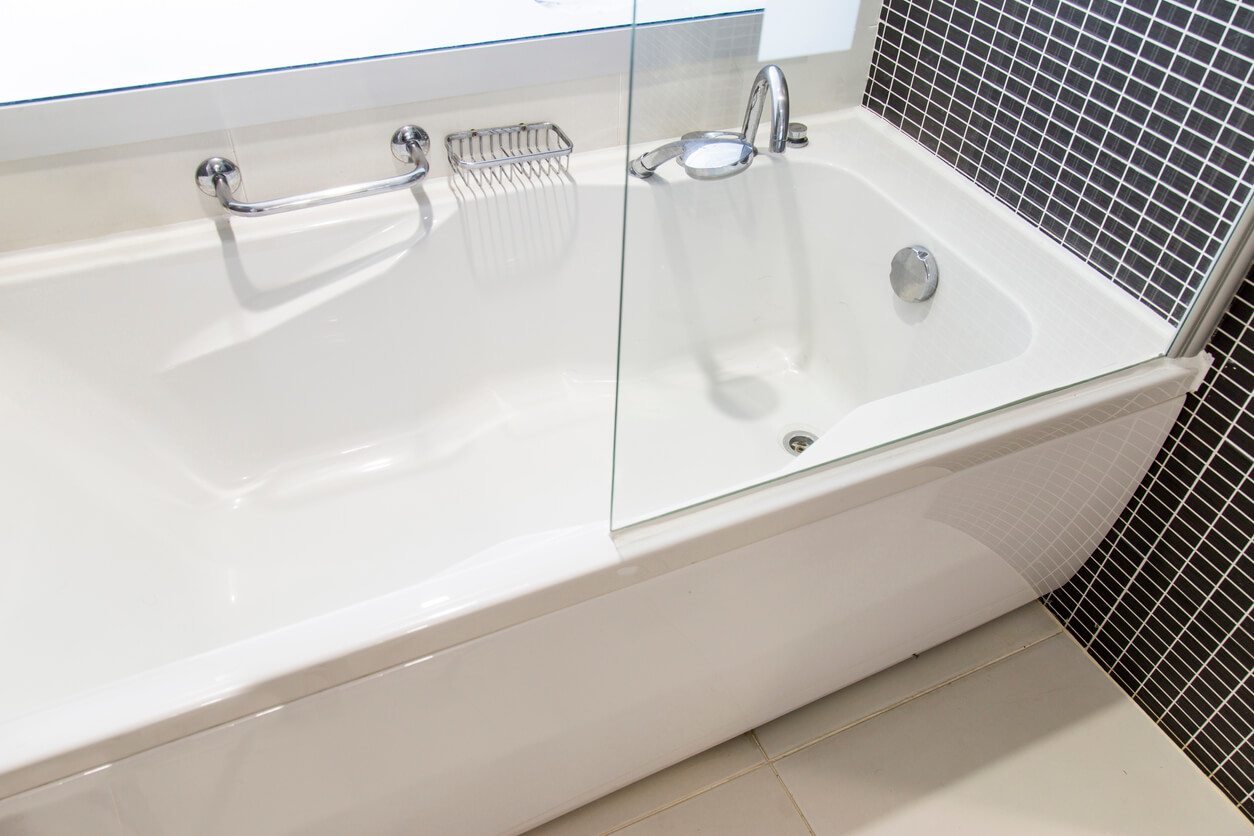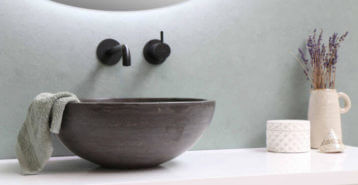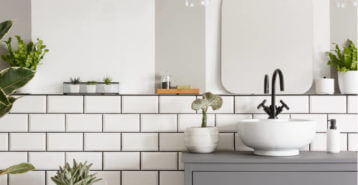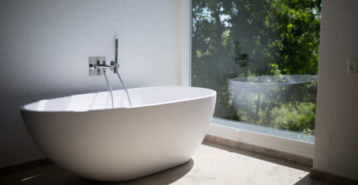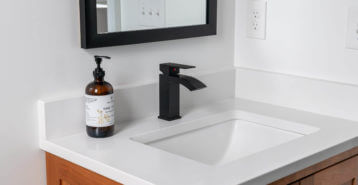An alcove bathtub is by far the most popular tub option among homeowners in the United States. But just what are they, and what do you need to know about them, especially if you are considering replacing yours or installing a new one? In this comprehensive guide, we will break down what an alcove tub is, what it costs, types available, and the best materials to consider.
What is an Alcove Bathtub?
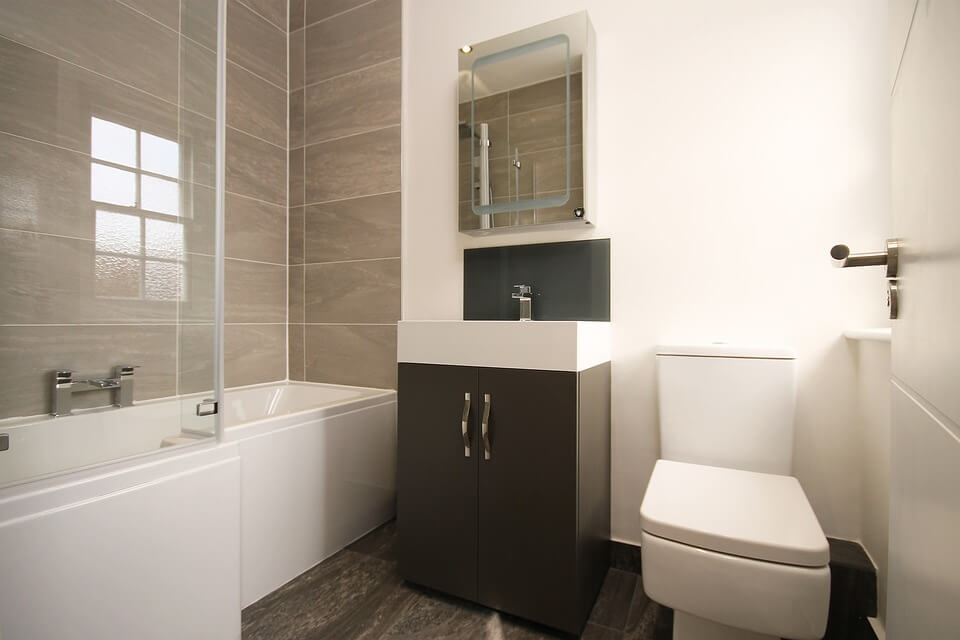
An alcove bathtub, often seen as a quintessential element in modern bathrooms, is a space-saving and practical solution for many homes. This type of bathtub is typically surrounded by walls on three sides, with the fourth side being the side where one enters the tub. Not only does this design optimize space, it also allows for the integration of a shower setup, making it a versatile choice for compact bathrooms. The design lends itself to a streamlined look, often complemented with a shower curtain or glass doors for a more enclosed, private experience.
Below, we will take a look at alcove tubs in more detail and help you decide if this type of bathtub is right for your bathroom space and personal needs.
Who Should Get an Alcove Bathtub?
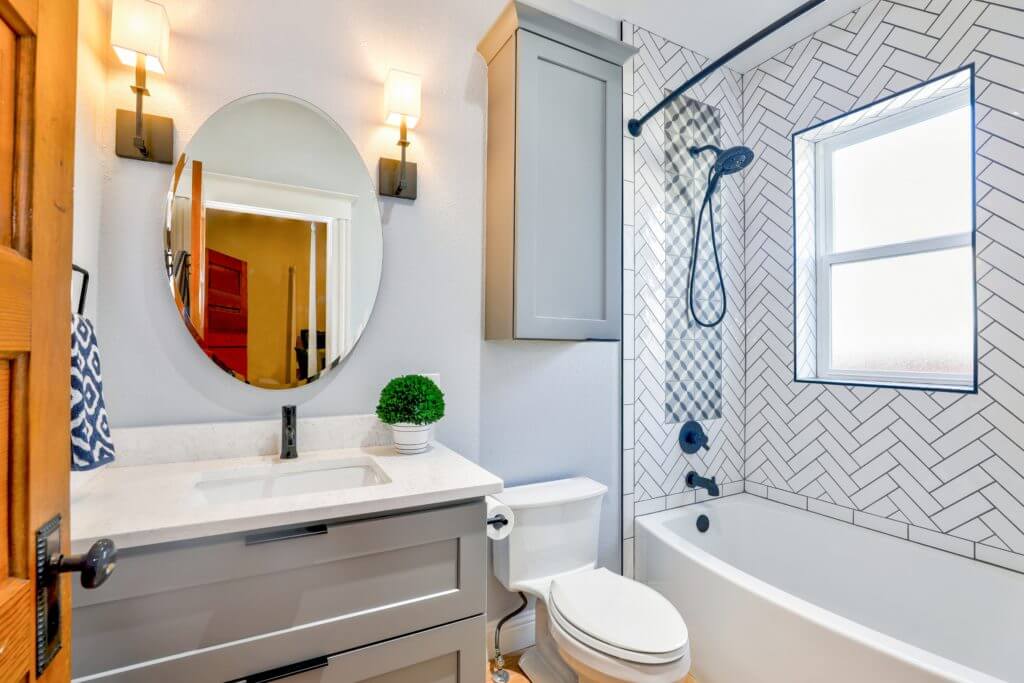
Alcove bathtubs are an excellent choice for a variety of homeowners, but they are particularly ideal for:
- Small to medium-sized bathrooms.
- Families with children.
- Anyone who wants a bathtub/shower combo.
- Homeowners on a budget.
Additionally, for those who are renovating or building a new home, the alcove bathtub presents a straightforward installation process compared to freestanding or corner tubs.
How Much Do Alcove Bathtubs Cost?
Alcove bathtubs tend to be quite affordable, ranging from $1,625 to $2,000 for a lower-end tub that will last for many years. Of course, adding on bells and whistles or increasing the size makes it more expensive.
For example, a standard sized tub using basic fiberglass and acrylic will be more affordable to install, while a large cast iron alcove tub may cost $2,000 or more.
Most homeowners install a showerhead in their alcove tub area to make it a shower and tub combo unit.
Installation and labor will add to the total cost of the project. You can expect to pay about $70 per hour of work your contractor spends installing the new bathtub. Most contractors will spend about four hours on installation, but that timeline can vary depending on your space.
What Sizes Do Alcove Bathtubs Come In?
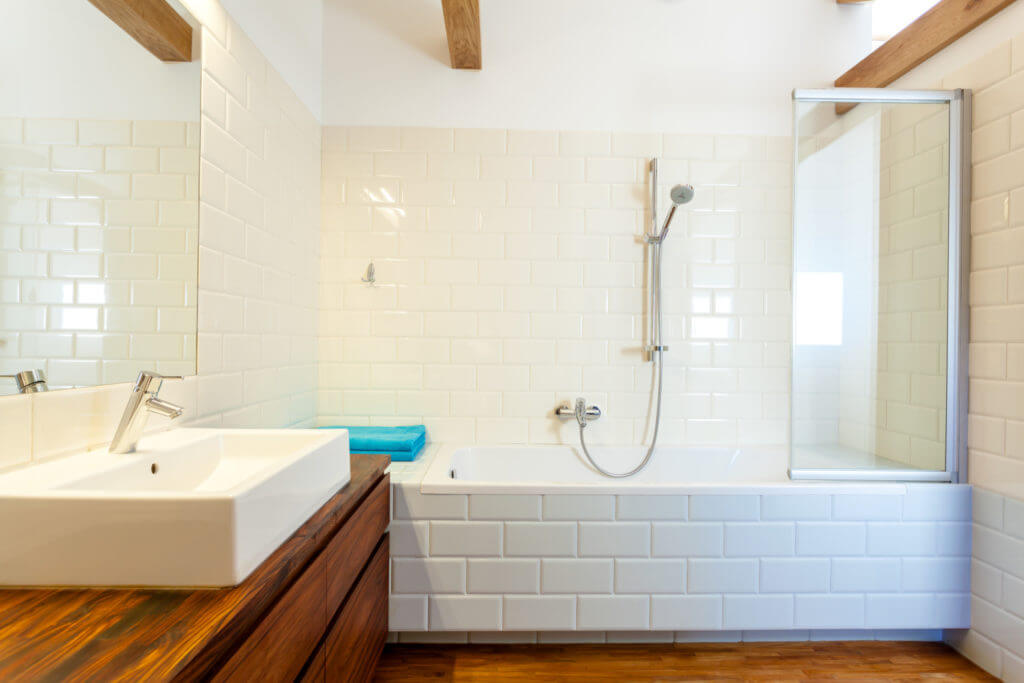
Alcove bathtubs are available in a range of sizes to accommodate different bathroom layouts and homeowner preferences.
The most common length for an alcove tub is 60 inches, which comfortably fits in the standard bathroom.
However, sizes can vary, with smaller models around 54 inches in length for more compact spaces, and larger ones reaching up to 72 inches for a more spacious bath experience.
The width and depth of alcove bathtubs also differ, typically ranging from 30 to 36 inches in width and 14 to 20 inches in depth. The depth is particularly important for those who enjoy a deeper soak.
Visit our guide to bathtub sizes to learn more about how to choose the right size for your space.
Best Alcove Bathtub Materials
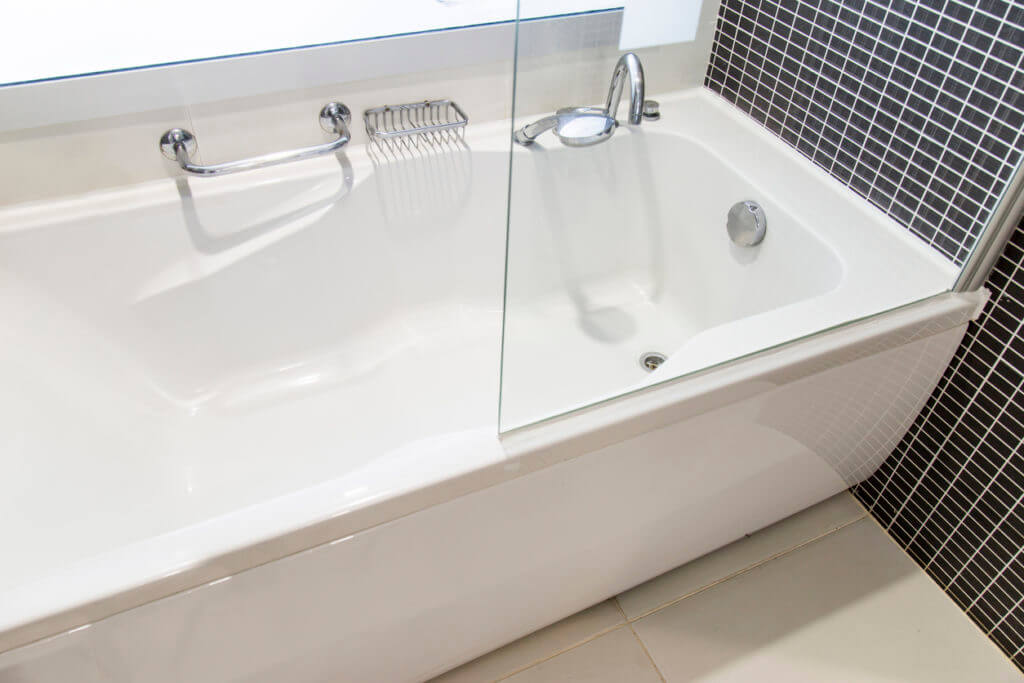
Your alcove tub’s material impacts the tub’s durability, maintenance, heat retention, and overall aesthetic. Here are the most common materials used for alcove bathtubs, along with their advantages and disadvantages.
For More Basic Budgets
- Acrylic. Acrylic alcove tubs are lightweight, affordable, and available in various shapes and sizes. They offer excellent heat retention and are resistant to cracking and chipping. However, they can be prone to scratches and may require regular cleaning to maintain their glossy finish.
- Fiberglass. Fiberglass is another affordable option. These tubs are lightweight and easy to install. However, they are less durable than other materials and may show signs of wear such as fading or cracking over time.
- Enameled steel. Offering a balance between durability and cost, enameled steel bathtubs are coated with a layer of porcelain enamel. They are more durable than acrylic or fiberglass but can be susceptible to chipping and rust if the enamel is damaged.
For Higher-End Budgets
- Cast iron. Cast iron alcove tubs are known for their longevity and timeless appearance. They are extremely durable and offer excellent heat retention. However, they are significantly heavier than other materials and may require additional structural support, especially in older homes. They are also usually at the higher end of the price spectrum.
- Solid-surface materials. These composite materials are often used in high-end bathtubs. They offer a stone-like appearance and are known for their durability and heat retention properties. Solid surface tubs are often more expensive but are a great choice for a luxurious and long-lasting bathtub.
- Cultured marble. Cultured marble bathtubs offer a luxurious look similar to natural marble but at a more affordable price. They are made from crushed marble and resin, offering a high level of durability and resistance to staining. However, they can be heavy and may require extra floor support.
Our Recommendation
Each material has unique characteristics, and the best choice depends on your budget, style preferences, maintenance willingness, and weight considerations for installation.
However, our choice for the best alcove bathtub materials would be acrylic (with enameled steel as a runner-up) for a more affordable option. If you have a larger budget, our choice would be cast iron (with solid-surface materials as the runner-up).
You can learn more about all your bathtub material options by reading our guide.
Want specific recommendations on brands and models? Check out our picks for the best alcove bathtubs.
What Are the Types of Alcove Tubs Available?
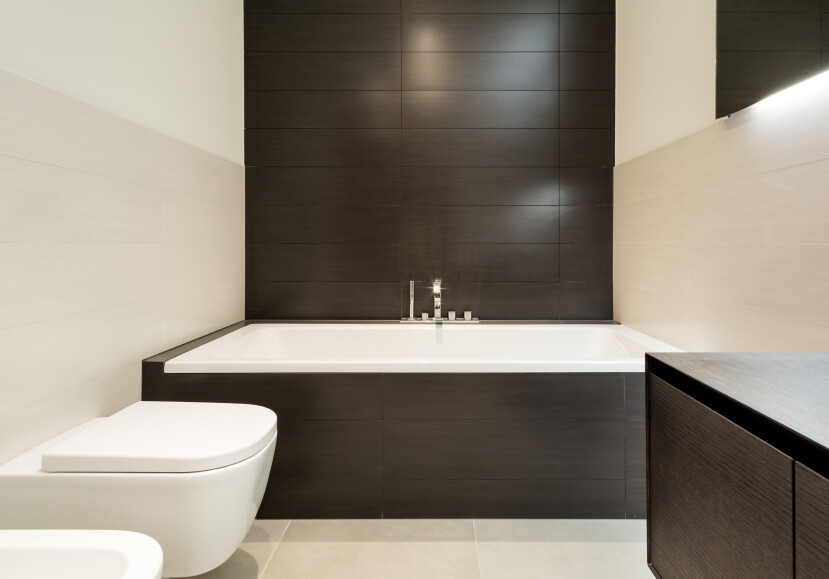
Alcove bathtubs come in various types, each offering different features and benefits. The most common types include:
- Alcove soaking tubs. These are standard alcove bathtubs designed primarily for bathing. They offer a simple, no-frills soaking experience, perfect for those who want a basic tub without additional features. Soaking tub varieties focus on depth above all else. Check out our guide to soaking tubs for more information.
- Jetted alcove tubs. Equipped with jets that use either air or water for a massaging effect, jetted alcove bathtubs are ideal for those seeking a spa-like experience. They can help in relieving muscle tension and offer a more therapeutic soak. You can read our massage tub guide to see if this is the right tub for you.
- Shower/tub combo. These tubs combine an alcove tub with a showerhead to give you the most flexibility for bathing. They are often chosen for bathrooms where homeowners want both a shower and a tub, but don’t have the room to install them separately. Our shower/tub combo guide breaks down everything you need to know.
- Walk-in tubs. Designed with accessibility in mind, walk-in bathtubs have a door for easy entry and exit. They are ideal for elderly users or those with mobility issues. Many of them are designed to replace a traditional alcove tub and will fit into the space you already have. You can read more about them by visiting our guide to walk-in tubs.
What Are My Next Steps?
Now that you’ve read up on alcove tubs, there are a few next steps you can take.
- You can learn more about bathtub remodels and tub types by reading our guide.
- You can browse our contractor directory to check out remodelers in your area.
- If you know this is the type of tub you want, you can get quotes on your project. We recommend getting three to four quotes in order to find the best price.
Modernize can help you out by doing the research for you. Click below and answer a few questions about your project to get matched with up to four contractors in your area.
Compare top-rated bathroom remodel pros in your area.
Read real homeowner reviews, explore qualifications, and view promotions. Modernize makes it easy to browse professionals and find one that will be perfect for your project.
